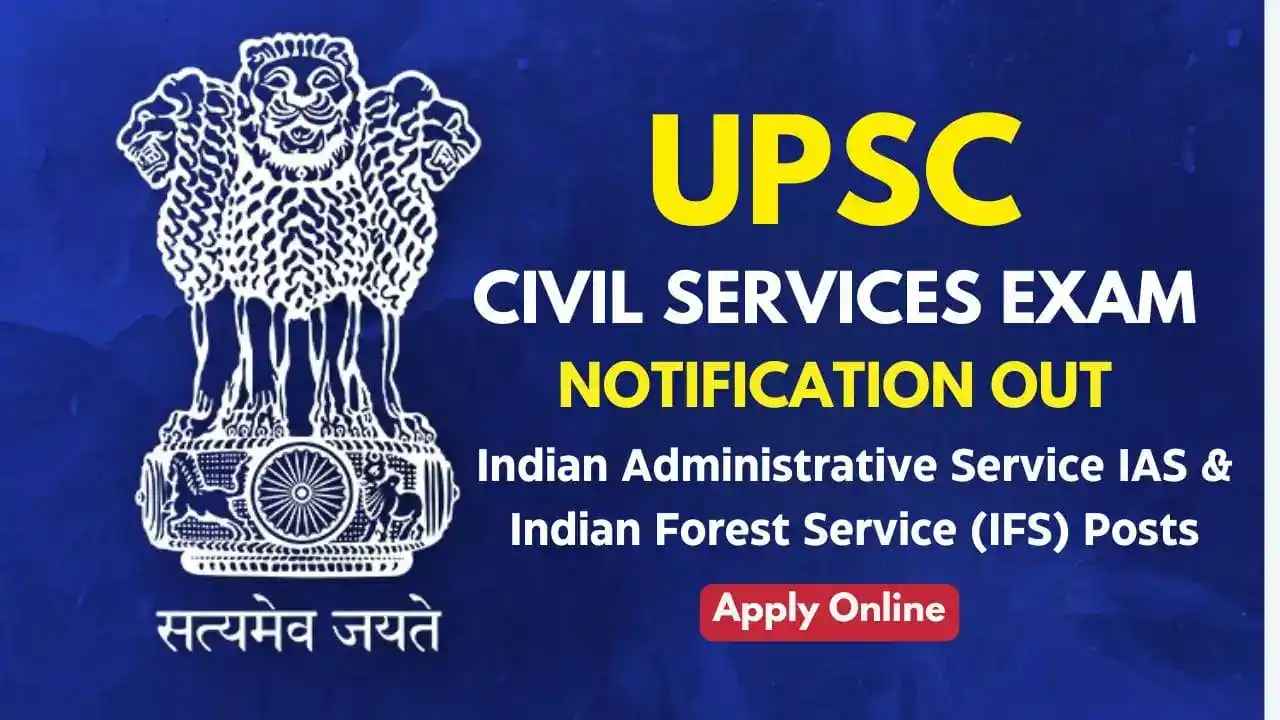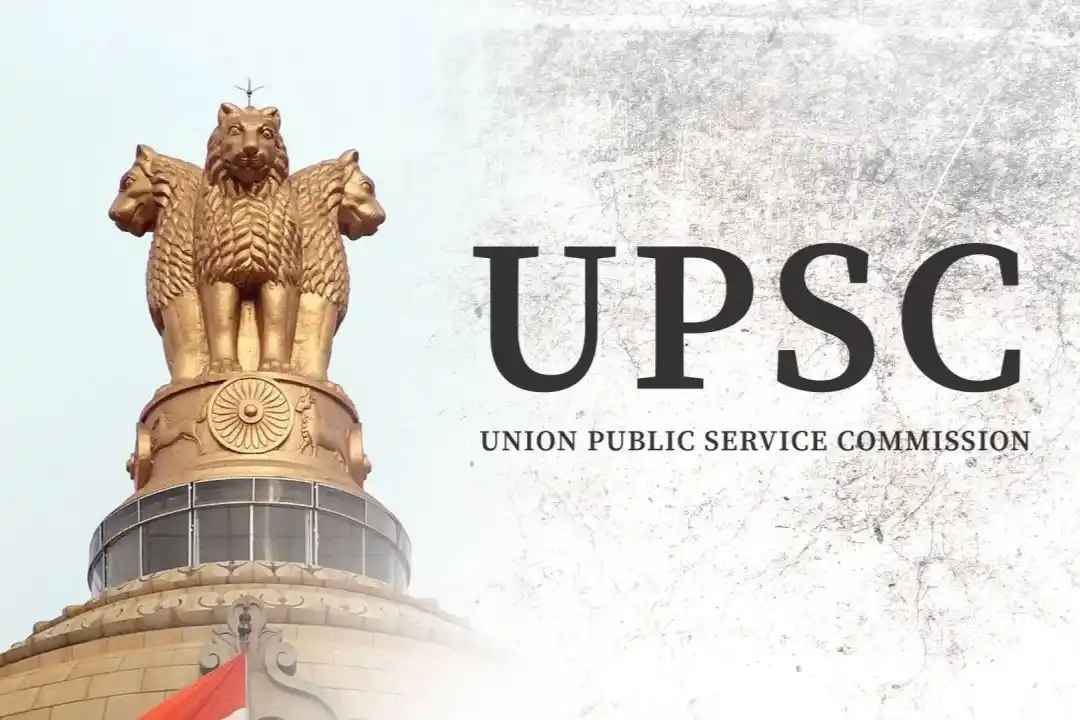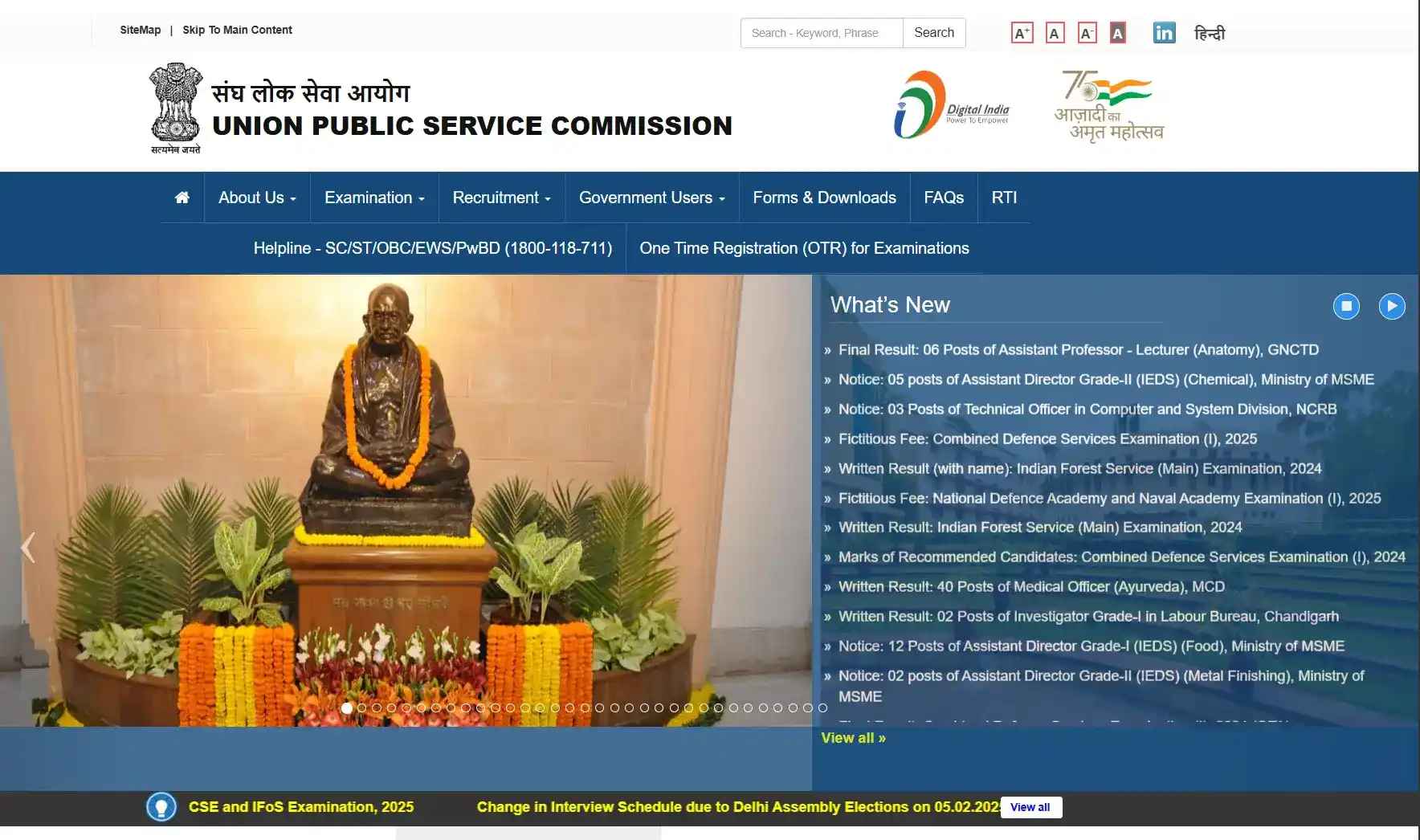UPSC Civil Services Notification 2025: Key Dates & Details
Updated on : 22 January, 2025

Image Source: google.com
The Union Public Service Commission (UPSC) has officially released the notification for the Civil Services Examination (CSE) 2025 on January 22, 2025. This notification is crucial for all aspirants aiming to crack one of India’s most prestigious and competitive examinations. It provides detailed information about the exam pattern, eligibility criteria, syllabus, important dates, and application process.

Image Source: google.com
Introduction to UPSC Civil Services Examination
The UPSC Civil Services Examination (CSE) is conducted annually to recruit candidates for top government services such as the Indian Administrative Service (IAS), Indian Police Service (IPS), and Indian Foreign Service (IFS). It is often referred to as one of the toughest exams in India due to its vast syllabus and rigorous selection process.
-
Why is it Important?
- The exam selects individuals who will play a pivotal role in shaping India’s governance, policymaking, and administration.
- It offers a platform for aspirants to serve society and contribute to nation-building.
-
Who Conducts It?
- The Union Public Service Commission (UPSC), an autonomous constitutional body, is responsible for conducting this exam.
Popular Blogs
Exam Pattern of UPSC CSE
The UPSC CSE is conducted in three stages:
Stage 1: Preliminary Examination
- Objective Type: The Prelims consist of two papers:
- General Studies Paper I: Tests knowledge on current affairs, history, geography, polity, economy, environment, and science.
- General Studies Paper II (CSAT): Tests comprehension, logical reasoning, and decision-making skills.
- Marks Distribution:
- Paper I: 200 marks
- Paper II: 200 marks (qualifying in nature; minimum 33% required)
- Purpose: Acts as a screening test for Mains.
Stage 2: Mains Examination
- Descriptive Type: Includes nine papers:
- Essay
- Four General Studies Papers
- Two Optional Subject Papers
- Two Language Papers (one qualifying)
- Marks Distribution:
- Total Marks: 1750 (excluding qualifying papers)
- Purpose: Tests candidates' in-depth knowledge and analytical abilities.
Stage 3: Personality Test (Interview)
- Face-to-Face Interaction:
- Conducted by a UPSC panel to assess candidates' personality traits and suitability for civil services.
- Marks Distribution:
- Total Marks: 275
| Stage | Type of Exam | Total Marks | Purpose |
|---|---|---|---|
| Prelims | Objective | 400 | Screening Test |
| Mains | Descriptive | 1750 | In-depth Knowledge Assessment |
| Interview | Personality Test | 275 | Assessing Leadership & Administrative Skills |
UPSC CSE Notification 2025
The official notification serves as the guiding document for aspirants. Here are the key highlights:
- Release Date: January 22, 2025
- Application Start Date: January 22, 2025
- Last Date to Apply: February 11, 2025
- Preliminary Exam Date: May 25, 2025
- Mains Exam Date: August 22, 2025
How to Access the Notification?
Visit the official website of UPSC (upsc.gov.in) to download the notification PDF.

Image Source: www.upsc.gov.in
Key Changes in UPSC CSE 2025
The UPSC has introduced some significant changes in the syllabus and exam approach this year:
- Updated Syllabus:
- New topics have been added across General Studies papers.
- Increased Focus on Current Affairs:
- Greater emphasis on contemporary issues like climate change, artificial intelligence (AI), and global geopolitics.
- Ethics Paper Expansion:
- Case studies now include real-life examples from recent administrative challenges.
These changes reflect UPSC’s intent to make the examination more aligned with current global trends and governance challenges.
New Topics in UPSC CSE Syllabus
Here’s a detailed breakdown of the new topics added to each paper:
General Studies Paper I:
- Expanded coverage of environmental issues such as biodiversity conservation and climate change.
- Disaster management strategies with real-world examples.
General Studies Paper II:
- Interpersonal skills and their role in public administration.
- Logical reasoning and analytical problem-solving.
General Studies Paper III:
- Advancements in science and technology like artificial intelligence (AI), robotics, biotechnology, nanotechnology, and space exploration.
- Cybersecurity threats and their implications for national security.
General Studies Paper IV:
- Ethics in governance with practical case studies.
- Integrity challenges faced by civil servants in modern contexts.
| Paper | New Topics Introduced |
|---|---|
| General Studies Paper I | Environmental issues; Disaster management |
| General Studies Paper II | Interpersonal skills; Logical reasoning |
| General Studies Paper III | AI; Robotics; Cybersecurity; Space exploration |
| General Studies Paper IV | Ethics case studies; Integrity challenges |
Preparation Strategies for New Topics
Preparing for new topics requires a strategic approach:
- Understand the Updated Syllabus:
- Download the updated syllabus from UPSC's official website.
- Create a Structured Study Plan:
- Allocate dedicated time slots for each subject daily.
- Use Standard Resources:
- Environment: Shankar IAS Environment Book
- Science & Technology: NCERT Science Books + online resources like PIB updates.
- Focus on Current Affairs:
- Read newspapers like The Hindu or Indian Express daily.
- Follow monthly magazines like Yojana or Kurukshetra.
Using Current Affairs in Preparation
Why are Current Affairs Important?
Current affairs are critical for both the Prelims and Mains stages of the UPSC Civil Services Examination. Here’s why:
- Increased Weightage: Many questions in Prelims and Mains are directly or indirectly linked to current events.
- Analytical Ability: Current affairs help develop the ability to analyze issues and form logical opinions, which is crucial for Mains and the Interview.
- Dynamic Knowledge: UPSC demands awareness of contemporary issues and their connections to governance, economy, and international relations.
- Real-World Applications: They bridge static subjects (like Polity or Economy) with real-world examples, enhancing answer quality.
- Interview Preparation: In the Personality Test, candidates are often asked about recent developments and their implications.
Recommended Sources
-
Newspapers:
- The Hindu: Comprehensive coverage of national and international news with insightful editorials.
- Indian Express: Detailed reporting and analysis of current events.
-
Monthly Magazines:
- Yojana: Focuses on government policies and socio-economic issues.
- Kurukshetra: Covers rural development and agriculture.
-
Government Websites:
- PIB: Official updates on government policies and initiatives.
- PRS Legislative Research: Analysis of legislative developments.
-
Online Resources:
- Platforms like Vision IAS or ClearIAS provide daily current affairs summaries specifically designed for UPSC aspirants. These resources offer comprehensive analysis and insights to help candidates stay updated on important developments relevant to their preparation.
Mock Tests: A Key Preparation Tool
Mock tests are essential for understanding exam patterns and improving performance:
Benefits of Mock Tests:
- Familiarize yourself with question types.
- Identify strengths and weaknesses.
- Improve time management skills.
How to Use Mock Tests Effectively?
- Take full-length tests under simulated exam conditions.
- Analyze your mistakes thoroughly after each test.
- Focus on weak areas while revising.
Analyzing Mock Test Performance
Post-test analysis is crucial for effective preparation in the UPSC Civil Services Examination. Here’s how to conduct a thorough analysis:
-
Identify Recurring Mistakes:
- Conceptual Errors: Look for patterns in the types of questions you frequently get wrong. Are they related to specific subjects or concepts? This can highlight knowledge gaps that need addressing.
- Time Mismanagement: Assess whether you are spending too much time on certain questions or sections. If you find that you often run out of time, it may be beneficial to practice pacing yourself during mock tests.
-
Review Detailed Solutions:
- After completing a mock test, go through the detailed solutions provided by your test series provider. This will help clarify why certain answers are correct and others are not, reinforcing your understanding of the subject matter.
- Consider creating an error log where you note down questions you got wrong along with the correct answers and explanations. This will serve as a valuable revision tool.
-
Track Your Progress Over Multiple Tests:
- Maintain a performance tracker to monitor your scores across different mock tests. This can include metrics such as total marks, accuracy percentage, and improvement over time.
- Use graphs or tables to visualize your performance trends in various subjects, which can help identify areas that require more focus.
Integrating Current Affairs into Mock Tests
Incorporating current affairs into your mock test preparation is essential for success in the UPSC exams:
-
Global Summits:
- Questions related to recent global summits like COP28 or G20 meetings are increasingly common. Stay updated on the outcomes and discussions from these events as they often relate to international relations and policy-making.
-
Technological Advancements:
- Familiarize yourself with recent technological developments, such as AI regulations or space missions. Understanding their implications on society and governance is crucial for both Prelims and Mains.
-
National Policies:
- Keep abreast of significant national policies like Digital India initiatives or environmental laws. These topics not only appear in current affairs sections but also have broader implications on governance and administration.
Review and Learn from Mistakes
Mistakes during mock tests are invaluable learning opportunities:
-
Categorize Errors:
- Divide your mistakes into categories: conceptual gaps (where you lack understanding) and silly mistakes (errors made due to oversight). This differentiation helps in targeted revision.
-
Revise Weak Topics:
- Use reliable resources to revisit topics where you struggled. Focus on understanding concepts rather than rote memorization, as this will aid long-term retention.
-
Practice Similar Questions:
- After identifying weak areas, practice additional questions related to those topics until you gain confidence. This repetition solidifies your understanding and prepares you for similar questions in the actual exam.
Building Exam Stamina and Focus
The UPSC exam requires significant mental endurance due to its lengthy duration:
-
Regular Mock Tests Under Timed Conditions:
- Simulate exam conditions by taking full-length mock tests under timed settings. This practice helps build stamina and prepares you for the pressure of the actual exam day.
-
Mindfulness Practices:
- Incorporate meditation or mindfulness exercises into your routine to improve focus and reduce anxiety. Techniques such as deep breathing can help calm nerves before tests.
-
Avoid Burnout:
- Schedule short breaks during study sessions to refresh your mind. Techniques like the Pomodoro Technique (25 minutes of focused study followed by a 5-minute break) can enhance productivity without leading to burnout.
Final Tips for UPSC CSE Preparation
-
Stay Consistent with Your Study Plan:
- Discipline is key in UPSC preparation. Stick to your timetable and make adjustments only when necessary to ensure comprehensive coverage of the syllabus.
-
Regular Revision:
- Don’t leave revision until the last minute; integrate it into your daily routine. Regularly revisiting topics helps reinforce knowledge and improves retention.
-
Maintain Motivation:
- Remind yourself of your goals and reasons for pursuing civil services whenever motivation wanes. Engage with fellow aspirants or mentors who can provide encouragement and support throughout your journey.
Conclusion
The release of the UPSC Civil Services Notification marks the beginning of an intense preparation phase for aspirants across India. With updated syllabi and increasing emphasis on current affairs, it’s critical to adopt a well-rounded preparation strategy that includes structured study plans, effective use of mock tests, and consistent revision.
For further details about the notification or syllabus updates, visit UPSC Official Website. Remember that success in this exam requires perseverance, hard work, and smart preparation—best of luck!

















